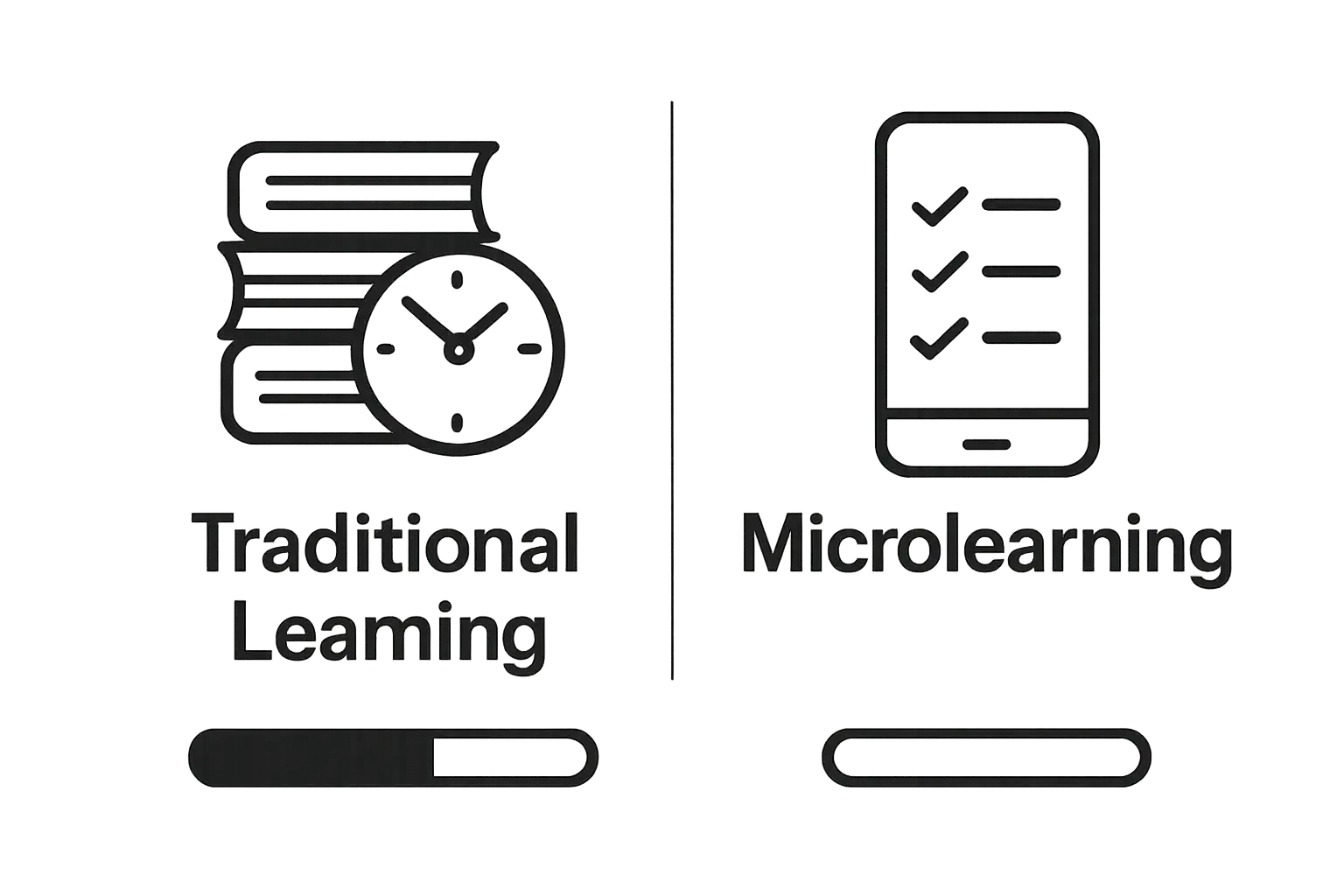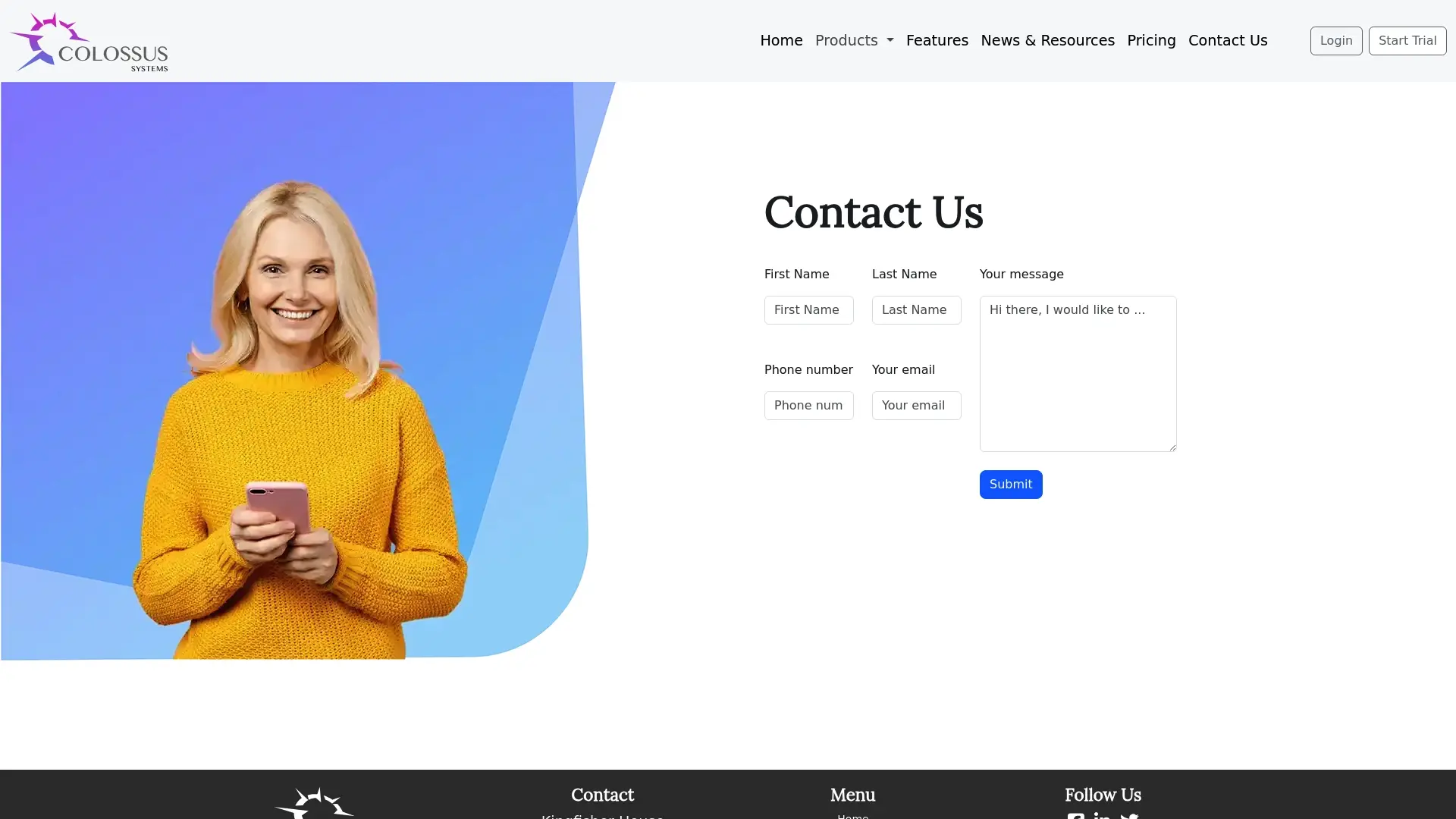What is Microlearning? Understanding Its Significance

Microlearning is transforming the way people acquire new skills and knowledge at work and beyond. You might think traditional training sessions are the gold standard, but microlearning modules are statistically proven to enhance retention and typically last only 2 to 15 minutes each. The true twist is that these bite-sized lessons are not just quicker—they often make learning stickier and far more enjoyable than you’d ever expect.
Table of Contents
- Defining Microlearning: Key Characteristics
- The Importance Of Microlearning In Modern Education
- How Microlearning Enhances Retention And Engagement
- Microlearning Techniques And Best Practices
- Applications Of Microlearning In Various Sectors
Quick Summary
| Takeaway | Explanation |
|---|---|
| Microlearning enhances retention | Learners retain information better when presented in short, digestible segments. |
| Targeted learning outcomes are key | Each microlearning module focuses on a single skill or knowledge area for clarity. |
| Engagement through interactivity | Incorporating formats like quizzes improves participation and interest in learning. |
| Flexible access supports learning | Microlearning content is accessible on various devices, allowing learning anytime and anywhere. |
| Supports timely skill development | Professionals can develop skills quickly during brief breaks or commutes, fitting into busy schedules. |
Defining Microlearning: Key Characteristics
Microlearning represents a modern learning approach that transforms traditional education and training methodologies by delivering knowledge in concise, targeted segments. Unlike conventional lengthy training programmes, microlearning breaks complex information into digestible, focused modules that learners can quickly consume and immediately apply.

Core Components of Microlearning
At its fundamental level, microlearning is characterised by three primary attributes: brevity, specificity, and accessibility. Research from the eLearning Guild confirms these modules typically range between 2 to 15 minutes, designed to address singular learning objectives with precision.
Key characteristics of microlearning include:
- Compact Content Delivery: Learning modules condensed into short, focused segments
- Targeted Learning Outcomes: Each module addresses a specific skill or knowledge area
- Flexible Consumption: Available across multiple devices and platforms
Technological Enablement and Learning Design
Modern microlearning leverages digital technologies to create engaging, interactive learning experiences. By utilising multimedia elements such as videos, infographics, quizzes, and mobile-responsive content, these learning modules cater to diverse learning preferences.
Moreover, microlearning aligns perfectly with contemporary workplace learning needs, enabling professionals to acquire skills without significant time investment. Learn more about promoting lifelong learning through adaptive learning strategies that support continuous personal development.
The design philosophy behind microlearning emphasises rapid knowledge transfer, making learning more accessible and less intimidating for learners across various professional and educational contexts. By breaking down complex concepts into bite-sized, manageable chunks, microlearning transforms traditional learning paradigms, making skill acquisition more efficient and engaging.
To clarify the core components of microlearning discussed in the section, the table below summarises each attribute alongside its explanation as presented in the article.
| Core Component | Explanation |
|---|---|
| Brevity | Microlearning modules are short, typically ranging from 2 to 15 minutes, focusing on conciseness. |
| Specificity | Each module is designed to address a single skill or knowledge area with precise objectives. |
| Accessibility | Content is delivered across multiple devices and platforms for flexible, on-demand learning. |
| Interactive Elements | Incorporates multimedia features like videos, infographics, and quizzes to boost engagement. |
| Practical Applicability | Modules are designed to be immediately applicable, supporting direct knowledge transfer. |
The Importance of Microlearning in Modern Education
Microlearning has emerged as a transformative educational strategy that addresses critical challenges in contemporary learning environments. As traditional educational models struggle to keep pace with rapidly evolving technological and professional landscapes, microlearning offers a dynamic solution for efficient knowledge acquisition and skill development.
Addressing Modern Learning Challenges
In an era of information overload and diminishing attention spans, microlearning provides a targeted approach to education. Research from Stanford University indicates that learners retain information more effectively when content is presented in short, digestible segments. This approach directly confronts the limitations of traditional lengthy training programmes by:
- Enhancing Knowledge Retention: Breaking complex information into manageable chunks
- Improving Engagement: Creating more interactive and accessible learning experiences
- Supporting Flexible Learning: Enabling just-in-time skill development
Economic and Professional Development Implications
Microlearning represents more than an educational technique. It is a strategic approach to professional development that aligns with the demands of modern workplaces. Explore our guide on online training benefits to understand how these compact learning modules can revolutionise organisational training.
Professionals today require continuous learning opportunities that fit seamlessly into their demanding schedules. Microlearning meets this need by offering precise, relevant content that can be consumed during short breaks, commutes, or between work tasks. This approach not only supports individual skill enhancement but also enables organisations to create more agile, adaptable workforce development strategies.
The significance of microlearning extends beyond individual skill acquisition. It represents a fundamental shift in how we conceptualise learning in the digital age. By prioritising targeted, efficient knowledge transfer, microlearning empowers learners to take control of their educational journey, making continuous learning a more accessible and manageable endeavour.
How Microlearning Enhances Retention and Engagement
Microlearning fundamentally transforms traditional learning approaches by creating highly targeted, cognitive-friendly educational experiences that dramatically improve knowledge absorption and learner motivation. By understanding the psychological principles underlying effective learning, microlearning strategically addresses the core challenges of information retention and sustained engagement.
Cognitive Science and Learning Efficiency
Research from neuroscience reveals that human brains process and retain information more effectively when learning occurs in short, focused bursts. Microlearning capitalises on this neurological preference by delivering content in compact, digestible modules that align with natural cognitive processing capabilities.
Key mechanisms that enhance learning retention include:
- Spaced Repetition: Reinforcing knowledge through strategically timed content review
- Active Recall: Encouraging learners to actively retrieve and apply information
- Contextual Learning: Presenting information within relevant, practical scenarios
Psychological Engagement Strategies
Engagement represents a critical factor in successful learning outcomes. Explore practical strategies for online learning engagement to understand how microlearning transforms passive consumption into active participation.
By incorporating interactive elements such as quizzes, simulations, and multimedia content, microlearning creates immersive experiences that maintain learner interest. These strategies tap into intrinsic motivation, making learning feel less like a chore and more like an engaging, personally relevant journey.
The power of microlearning lies in its ability to respect learners’ cognitive limitations while simultaneously providing rich, meaningful educational experiences. By breaking complex concepts into manageable segments and leveraging multimedia approaches, this methodology ensures that learning becomes an accessible, enjoyable process that adapts to individual learning preferences and modern lifestyle constraints.

Microlearning Techniques and Best Practices
Effective microlearning requires strategic design and thoughtful implementation that goes beyond simply shortening traditional learning content. It demands a nuanced approach that carefully considers learner needs, technological capabilities, and educational objectives while maintaining high-quality knowledge transfer.
Designing Effective Microlearning Modules
Research from the International Journal of Learning Technologies emphasises that successful microlearning modules must be meticulously crafted to address specific learning outcomes with precision and clarity. Each module should embody several critical characteristics:
- Laser-Focused Content: Concentrating on a singular learning objective
- Immediate Applicability: Providing practical skills that can be instantly implemented
- Multimedia Integration: Utilising diverse content formats like videos, infographics, and interactive quizzes
Technological Implementation and Delivery Strategies
Microlearning thrives on technological platforms that support flexible, accessible learning experiences. Explore our comprehensive guide on online learning strategies to understand how digital tools can enhance educational delivery.
Modern microlearning techniques leverage mobile responsiveness, allowing learners to access content seamlessly across multiple devices. This approach recognises that contemporary professionals require learning solutions that integrate smoothly into their dynamic, fast-paced work environments. By creating bite-sized, engaging modules accessible through smartphones, tablets, and computers, organisations can provide continuous learning opportunities that respect individual schedules and preferences.
The ultimate goal of microlearning is not just to deliver information, but to create transformative educational experiences that empower learners to continuously develop their skills with minimal time investment and maximum impact. By adhering to these best practices, organisations can develop microlearning strategies that are both intellectually rigorous and pragmatically designed.
Applications of Microlearning in Various Sectors
Microlearning has demonstrated remarkable versatility across diverse professional and educational domains, offering tailored solutions that address unique learning challenges in different sectors. Its adaptable nature enables organisations to create targeted, efficient learning experiences that align precisely with sector-specific requirements and professional development needs.
Corporate Training and Professional Development
In corporate environments, microlearning revolutionises traditional training approaches by delivering concise, immediately applicable skills training. Companies can rapidly upskill employees, introduce new technologies, or reinforce critical workplace procedures through compact, engaging learning modules that minimise productivity disruption.
Key applications in corporate settings include:
- Compliance Training: Quick updates on regulatory requirements
- Technical Skills Development: Short tutorials on software and technological tools
- Onboarding Processes: Bite-sized introduction to organisational protocols
Healthcare and Professional Certifications
Research in medical education demonstrates microlearning’s critical role in continuous professional development. Healthcare professionals can access rapidly updated medical protocols, emerging treatment guidelines, and critical procedural information through targeted, mobile-friendly learning segments.
Learn more about implementing effective online training strategies to understand how different sectors can leverage microlearning technologies.
Beyond corporate and healthcare environments, microlearning finds powerful applications in academic institutions, technology firms, manufacturing sectors, and service industries. Its universal appeal lies in the ability to provide precise, contextualised learning experiences that respect professionals’ time constraints while delivering high-impact educational content. By breaking complex knowledge into digestible segments, microlearning transforms traditional learning paradigms across multiple professional landscapes.
To highlight the distinctive applications of microlearning across different sectors, the following table outlines how it is adapted to meet unique organisational and professional needs as discussed in the article.
| Sector | Application Examples | Benefits for Sector |
|---|---|---|
| Corporate Training | Compliance updates, technical tutorials, onboarding modules | Minimises disruption, accelerates upskilling, boosts retention |
| Healthcare & Certifications | Updated guidelines, procedural training, continuous professional development | Ensures timely knowledge, supports lifelong learning |
| Academic Institutions | Supplementary lessons, exam preparation modules | Enhances engagement, fits diverse schedules |
| Technology Firms | Software feature introductions, code walkthroughs | Quick adoption of tools and platforms |
| Manufacturing & Services | Safety protocols, process optimisation training | Rapid delivery of critical, job-specific knowledge |
Shape the Future of Learning for Your Members Today
Traditional training often feels overwhelming and fails to engage today’s audiences. As highlighted in our article on microlearning, many organisations struggle with information overload, short attention spans, and the challenge of making education both memorable and accessible. If your membership-based organisation is seeking to boost engagement, streamline professional development, and make knowledge retention effortless, it is time to experience the power of modern microlearning.

Colossus Systems transforms the way membership organisations approach training and engagement. Our unified platform supports interactive micromodule delivery, targeted content, event planning, and more. Help your members achieve more, increase satisfaction, and grow your organisation with tailored strategies proven to maximise learning retention. Do not let your association fall behind. Contact our experts today to discuss how you can put microlearning into practice, enhance virtual training, and see measurable results fast. The future of member engagement starts now — ensure you are ahead of the curve with Colossus Systems.
Frequently Asked Questions
What is microlearning?
Microlearning is an educational approach that delivers knowledge in short, targeted segments, allowing learners to quickly consume and apply information.
What are the key characteristics of microlearning?
Microlearning is characterised by brevity, specificity, and accessibility. It involves compact content delivery, targeted learning outcomes, and flexible consumption across various devices.
How does microlearning enhance knowledge retention and engagement?
Microlearning improves retention by presenting information in short bursts, using techniques like spaced repetition and active recall, while engaging learners through interactive elements like quizzes and multimedia content.
What are some applications of microlearning in professional development?
Microlearning is widely used in corporate training, healthcare, and academic institutions. It helps professionals quickly acquire new skills, stay updated on protocols, and efficiently onboard new employees.